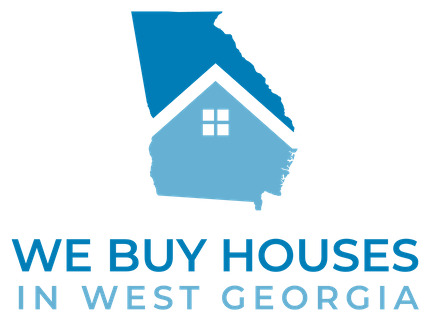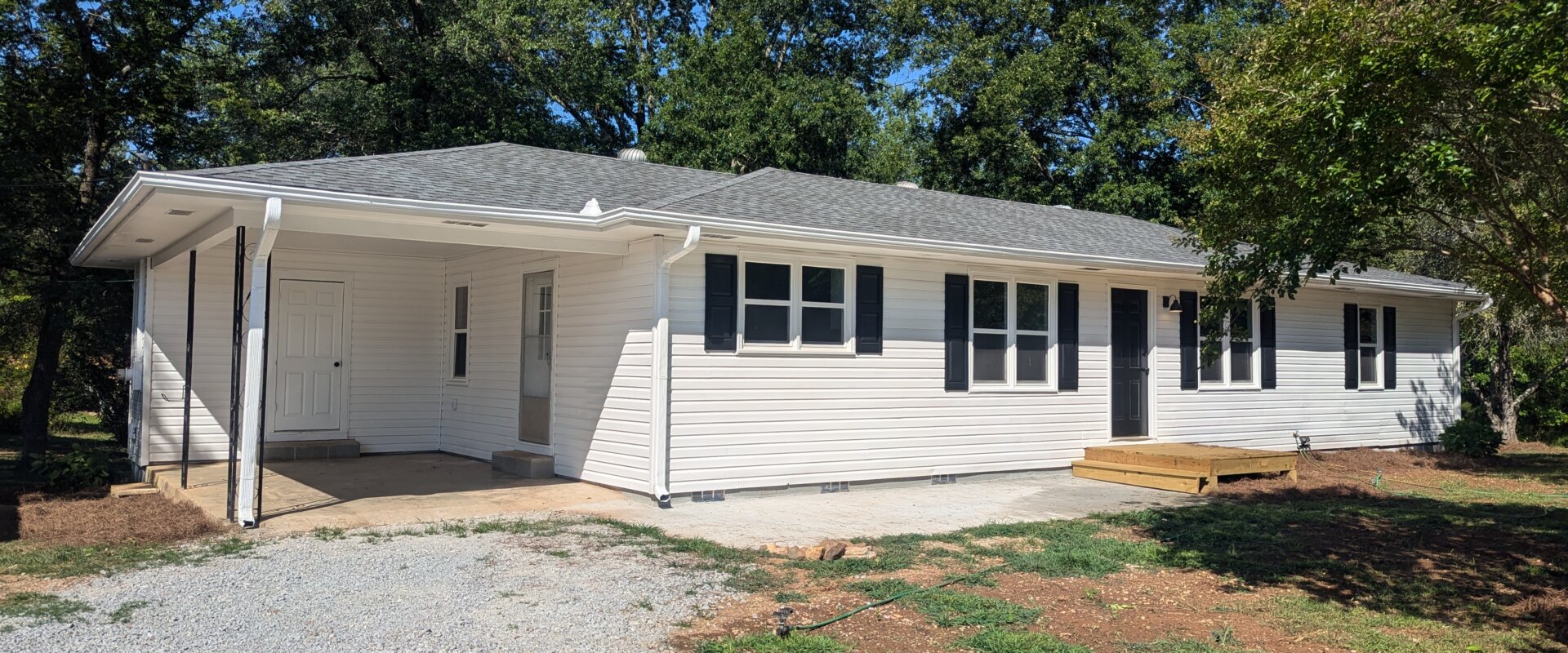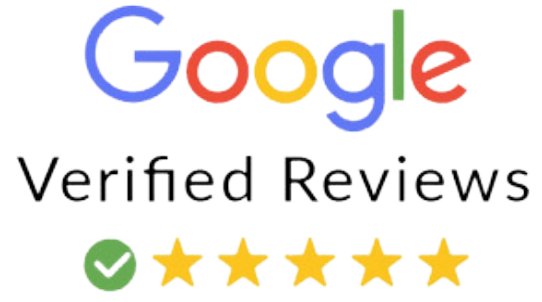Any number of situations can cause a homeowner to face foreclosure. Personal emergencies, unemployment, severe property damage, and many other factors can impact anyone’s ability to make mortgage payments on time. No matter your situation, it can be overwhelming to default on your loan and face foreclosure on your Georgia property, and you might have a lot of questions. What does Georgia’s foreclosure process look like? How will foreclosure affect my financial situation? How can I avoid foreclosure on my house? We are here to answer these questions and help you review all of the options that Georgia offers to help homeowners avoid foreclosure, such as negotiating with your lender, seeking government aid, or even deciding to sell your house.
What is foreclosure?
When you buy a house, you will likely seek out a lender to provide you with a mortgage loan in order to afford paying for the home. The loan agreement that you have with your lender usually involves two documents for you to sign: a promissory note and a security deed. The promissory note is your commitment to repay your loan over an agreed-upon term. The security deed grants the lender interest in your property and will likely include a power of sale clause, which means that your lender will have the right to sell your house through Georgia’s non-judicial foreclosure process if you default on your mortgage payments.
Even though a default on your loan is what starts foreclosure, Georgia’s foreclosure process has required steps between a missed payment and actually foreclosing on a property. Foreclosure in Georgia is handled through a non-judicial process, meaning that court intervention is usually unnecessary, and the process is generally fast-paced. However, there are non-judicial steps required of lenders during the time between default and foreclosure, as outlined in the Official Code of Georgia, Sections 44-14-162 through 44-14-162.4. Below is a quick and easy guide to these steps.
Georgia’s Foreclosure Process
Following a default on the loan agreement, Georgia’s foreclosure process should look something like this. Certain variables may change depending on the loan agreement you have with your lender, but most requirements are the same for lenders across Georgia.
Step 1: Pre-foreclosure
Usually, a borrower must be at least 120 delinquent on mortgage payments before the foreclosure process can begin, according to federal law. This 120 days between the first missed payment and the next step in foreclosure is known as the pre-foreclosure stage. During this time, the lender will likely get in contact with the borrower in order to recover the missed payments and let the borrower know about any grace period or late fees that are stipulated in the loan agreement.
If you have missed mortgage payments, this is the best time for you to consider your options to avoid foreclosure on your Georgia property. If you are unsure of the best way to move forward, we recommend seeking legal guidance or contacting your lender to discuss refinancing or loan modification options. Foreclosure is an expensive and time-consuming process for lenders, and it’s likely that your lender wants to avoid it as much as you do. Approaching them for foreclosure alternatives is usually a good option at this stage.
Step 2: Notice of intent to foreclose
If there has been no action to resolve the default following the 120-day pre-foreclosure stage, the lender will send the borrower a notice of intent to foreclose. This is an official document delivered at least 30 days before scheduling a foreclosure sale, and it informs the borrower of their default, of their lender’s intent to collect their payments or foreclose on the property, and the contact information of either an individual or entity who can address refinancing or loan modification options.
If you receive a notice of intent to foreclose from your lender, make sure that you read it carefully, review any remediation options, and note any important dates or deadlines.
Step 3: Publication of the notice to sale
If the default is not resolved following the notice of intent to foreclose, the lender will move forward with the foreclosure sale. For a lender to to do this legally, they are required to publicly advertise the sale at least once a week for four consecutive weeks in the official newspaper of the property’s county. This is done to notify any potential buyers about the sale. During this time, the borrower may still be able to resolve their default by paying their debts. This can usually be done up until five days before the scheduled foreclosure auction. However, it is important that the borrower understands their loan agreement and knows their rights, as the reinstatement deadline can vary.
Step 4: Foreclosure sale
If a month following the notice of intent to foreclose passes without the borrower resolving the default, the foreclosure sale will proceed. These sales are usually auctions held at the county courthouse or sheriff’s office on the first Tuesday of each month, unless a federal holiday falls on that day. At the auction, the lender and potential buyers can bid on the property, and the deed of the property will be transferred to the highest bidder. If the lender is the highest bidder and the their winning bid is less than the borrower’s deficit (including foreclosure fees and costs), then they can sue the borrower for a deficiency judgement. If that is the case, the borrower will still be left with a debt to their lender after losing the deed to their house and being forced to deal with the financial repercussions of foreclosure.
Effects of foreclosure
Aside from a losing your house after the foreclosure sale, there are other longstanding effects of foreclosure that can heavily impact the your finances. These effects can be severe and long-lasting enough for most homeowners to do nearly anything to avoid foreclosure.
As mentioned previously, it is possible for your lender to sue for a deficiency judgement if the property does not sell for the full amount of the your deficit. This can leave you with an additional debt following the foreclosure sale. Alternatively, if the lender forgives the remaining deficit, then you must report that forgiven amount as income on your taxes, which may then be subject to a capital gains tax.
In addition to this, the largest impact of foreclosure is the hit to your credit score. A foreclosure will appear on your credit report for 7 years, and it can prevent you from obtaining loans from other financial institutions because lenders might doubt your ability to meet any future repayment obligations. This mark on your credit report may also make it difficult to find work or rental properties, as employers and renters often use credit reports as a way to assess reliability. In short, having a foreclosure on your credit report can be detrimental to your finances.
How to Avoid Foreclosure in Georgia
Luckily, Georgia offers plenty of different ways that you can avoid foreclosure and its long-term effects to your finances. We’ll list those here so you can evaluate which options might work best for your situation and your goals as a homeowner.
Reinstatement
Reinstating your loan involves paying off your deficit, including any late fees, by the deadline specified by your lender. This option allows you to resolve your default, retain your property, and continue making mortgage payments under the original loan agreement. Depending on the stipulations of your lender, you can usually reinstate your loan at any point up to five days preceding the foreclosure sale of your property.
Reinstatement is usually the easiest option if you have the funds available. However, if you are struggling to make mortgage payments on-time, resolving your default might not be so simple.
Loan Modification
Loan modification is an option that you can apply to your lender for. If the lender approves this option, you will be able to renegotiate some of the terms of your original loan agreement, such as the interest rate or term of your loan, in order to make mortgage payments easier for you to manage. This will allow you to resolve or temporarily set aside the missed payments and retain your property under the new agreement, which may involve a trial period that determines if the new agreement works for both you and the lender.
Forbearance
Forbearance is an option that can suspend or reduce your mortgage payments, usually due to sudden, short-term financial difficulties, such as medical bills or personal emergencies. This option allows you to temporarily suspend or reduce mortgage payments, retain your property, and avoid foreclosure or any hits to your credit report. Much like loan modification, forbearance is an option that must be granted by the lender. It will also require a repayment plan to settle payments that were suspended or reduced during the forbearance process.
Government Aid
Depending on your situation, you may be eligible for government aid in order to avoid foreclosure. You can check out Georgia’s mortgage assistance to apply for aid and see what benefits may be available for you.
Deed-in-Lieu of Foreclosure
This option can be a simple, though less desirable option for avoiding foreclosure. With deed-in-lieu of foreclosure, you can transfer the deed of your home directly to your lender, and they will consider your mortgage fully paid. However, you will lose your house and any equity that you may have gained.
Sell Your House
You can choose to sell your house in order to avoid the difficulties of foreclosing. If you can sell your house before the foreclosure process is initiated or completed, the funds from the sale should allow you to settle any missed mortgage payments with your lender. It will also help you avoid paying attorney fees, losing your home’s equity, and receiving any marks on your credit report.
Sell Your House and Avoid Foreclosure
Contact Us For Your Cash Offer Today!
How to Sell Your House and Avoid Foreclosure
There are many different options when you sell your house to avoid foreclosure, each with different pros and cons. The most common choice to sell your house is to list with an agent.
Traditional Sale
If you are looking to sell your house to avoid foreclosure, you can opt for a traditional sale with a Georgia realtor. This choice allows you to commission an agent, sell your house to a traditional buyer, retain the equity of your home, and use the funds from selling to resolve any default on your loan.
The biggest drawback of this option is that it requires time, attention, and money, which you may not have when you are trying to avoid foreclosure. If you are considering a traditional sale, keep in mind the time frame that you have to sell your house before foreclosure. Though some lenders may be willing to delay foreclosure in order for you to have a chance to sell, you may still be on a very tight schedule. Make sure you and your agent discuss any time limitations that you need to stick to in order to avoid foreclosure.
Short Sale
A short sale is an option that allows you to sell your house for less than you owe on your mortgage. This option involves selling the property with a realtor experienced in short sales, avoiding foreclosure, and receiving a negative credit mark. Your lender will also use the funds from the sale to resolve the default.
Before you pursue a short sale, know that your lender must sign off on the process. Odds are, you cannot apply or be approved for a short sale unless you are facing financial hardship. Your lender must also approve of the final selling price, and they may also hold you responsible for the difference between the selling price and your remaining debt, so ensure that you discuss these stipulations with your lender when request approval for a short sale.
Sell to a Cash Buyer
If you want to avoid investing time and money into listing when you sell your house, you might consider selling directly to a cash house buyer in Georgia. This option lets you sell your house as-is for cash, keep your home’s equity, use the funds to resolve the default, and avoid foreclosure and any hits to your credit report.
You can research different cash house buyers in your Georgia area to find the best one for you. During this process, make sure you avoid any scam companies: look at customer reviews, work experience, and business verifications in order to make sure you get a cash offer from a legitimate company.
If you’re looking to sell your house and avoid foreclosure in Georgia, contact us for a free cash offer on your property!
We Buy Houses In West Georgia is a local homebuying company that makes fair cash offers on properties as-is. No matter your situation, we can help you offload your property as quickly as possible. Our process eliminates the hassle of the traditional home-selling process, allowing you to sell your house and move on, worry-free and with cash in-hand.
No Repairs
We buy houses in Georgia as-is. If you sell to us, we handle all repairs after the closing. There is no need for you to invest in any home improvement before selling.
No Fees or Closing Cost
Our services are 100% free. You won’t pay any closing costs when you sell to us, and we provide cash offers completely free of charge for our prospective clients.
Fast Closings
We close on your schedule, whether that be in as little as 7 days or over the span of a few months. Our agreement is customizable to fit your needs.
No Cleaning
There is no need to clean the house. If you want, you are free to take the belongings that you want and leave the rest. Our team can handle any cleaning after we close.
No Real Estate Commissions
We handle our homebuying process entirely in-house, so you don’t have to worry about paying real estate agent commissions or fees for our business.
Fast & Fair Cash Offer
Because our process is completed with our in-house team of professionals, we don’t involve banks or appraisers in our buying process. This means we can send you our offer within 24 hours without worrying about loan approvals.
Once you fill out our form to get your no-obligation cash offer started, someone from our team will contact you in order to set up a meeting to view your property, answer any questions, and make our cash offer. If you choose to accept this offer (there is no obligation to accept!), we will close at a local attorney’s office, and you receive your cash payment.
“Moving out of state”
“I was engaged and moving out of state and needed to sell my house in Villa Rica, GA. A friend recommended I call an investor she knew that buys houses. Jimmy was able to buy my house and close quickly which gave me one less thing to worry about! If you have a house you need to sell fast call Jimmy.”
– Donna Frazier, Villa Rica, GA 
If you want to learn more, we invite you to visit our How It Works page. Here, we offer full transparency about our homebuying process, including details about exactly how we calculate our offers. You can also check out Our Company page to get to know our team, our credentials, and our experience. Fill out the form below to get a no-obligation cash offer started now!



 Give us a call at
Give us a call at  Meet with us so we can take a look at your house and answer any questions
Meet with us so we can take a look at your house and answer any questions Receive your offer, choose a closing date, & get paid
Receive your offer, choose a closing date, & get paid

